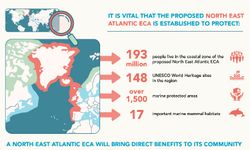This growth comes despite the strong performance of the freight market in recent years, which has encouraged many shipping companies to pay off their loans early.
Greek banks, each advancing at a different pace, have continued to aggressively expand their shipping loan portfolios. The sector is seen as a low-risk investment with assessable customers that generate high interest income. In addition to the four major banks—National Bank, Eurobank, Alpha Bank, and Piraeus Bank—Aegean Baltic Bank and Pancreta Bank, which merged with Attica Bank in 2023, have also increased their lending to the shipping sector, with Pancreta Bank's loans rising from $74 million in 2023.
This growth in financing is not limited to Greek banks. The total financing for Greek-owned ocean-going shipping, including loans from both Greek and foreign banks, has risen from $50.9 billion last year, driven by the expansion of Greek portfolios.
International banking analysts have noticed this trend. Morningstar DBRS, in its report on the European banking sector, pointed out that Greek banks are bucking the trend seen in other countries. While banks in Germany and Scandinavia are retreating from shipping loans, French banks are expanding, and Greek banks are now among the top providers of shipping finance in Europe.
The global financial crisis of 2008 was a pivotal moment for the shipping industry, as a sharp decline in international trade volumes led to bad loans and large provisions. This caused a more cautious approach to shipping finance from international banks, particularly those from Germany, Scandinavia, and Britain. In contrast, French banks like BNP Paribas, Credit Agricole, and Societe Generale remain some of the largest financiers in the shipping sector, though shipping loans account for only about 2% of their total portfolios.
In comparison, shipping loans make up around 8% of the portfolios of Greece's top banks, though this is not considered a negative factor, according to DBRS. The aggressive lending strategy of Greek banks places them at the forefront of the European shipping finance sector.






